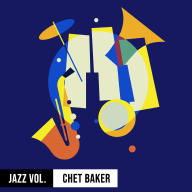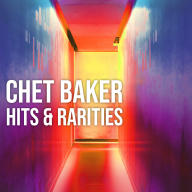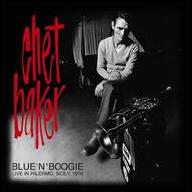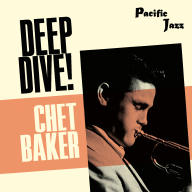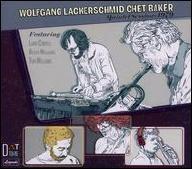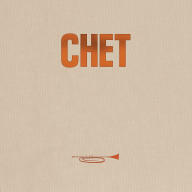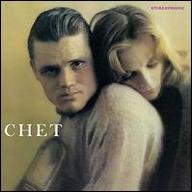Baker's father, Chesney Henry Baker,Sr., was a guitarist who was forced to turn to other work during the Depression; his mother, Vera (Moser) Baker, worked in a perfumery. The family moved from Oklahoma to Glendale, CA, in 1940. As a child, Baker sang at amateur competitions and in a church choir. Before his adolescence, his father brought home a trombone for him, then replaced it with a trumpet when the larger instrument proved too much for him. He had his first formal training in music in junior high and later at Glendale High School, but would play largely by ear for the rest of his life. In 1946, when he was only 16 years old, he dropped out of high school and his parents signed papers allowing him to enlist in the army; he was sent to Berlin, Germany, where he played in the 298th Army Band. After his discharge in 1948, he enrolled at El Camino College in Los Angeles, where he studied theory and harmony while playing in jazz clubs, but he quit college in the middle of his second year. He re-enlisted in the army in 1950 and became a member of the Sixth Army Band at the Presidio in San Francisco. But he also began sitting in at clubs in the city and he finally obtained a second discharge to become a professional jazz musician.
Baker initially played in Vido Musso's band, then with Stan Getz. (The first recording featuring Baker is a performance of Out of Nowhere that comes from a tape of a jam session made on March 24, 1952, and was released on the Fresh Sound Records LP Live at the Trade Winds.) His break came quickly, when, in the spring of 1952, he was chosen at an audition to play a series of West Coast dates with Charlie Parker, making his debut with the famed saxophonist at the Tiffany Club in Los Angeles on May 29, 1952. That summer, he began playing in the Gerry Mulligan Quartet, a group featuring only baritone sax, trumpet, bass, and drums -- no piano -- that attracted attention during an engagement at the Haig nightclub and through recordings on the newly formed Pacific Jazz Records (later known as World Pacific Records), beginning with the 10" LP Gerry Mulligan Quartet, which featured Baker's famous rendition of My Funny Valentine.
The Gerry Mulligan Quartet lasted for less than a year, folding when its leader went to jail on a drug charge in June 1953. Baker went solo, forming his own quartet, which initially featured Russ Freeman on piano, Red Mitchell on bass, and Bobby White on drums, and making his first recording as leader for Pacific Jazz on July 24, 1953. Baker was hailed by fans and critics and he won a number of polls in the next few years. In 1954, Pacific Jazz released Chet Baker Sings, an album that increased his popularity but alienated traditional jazz fans; he would continue to sing for the rest of his career. Acknowledging his chiseled good looks, nearby Hollywood came calling and he made his acting debut in the film #Hell's Horizon, released in the fall of 1955. But he declined an offer of a studio contract and toured Europe from September 1955 to April 1956. When he returned to the U.S., he formed a quintet that featured saxophonist Phil Urso and pianist Bobby Timmons. Contrary to his reputation for relaxed, laid-back playing, Baker turned to more of a bop style with this group, which recorded the album Chet Baker Crew for Pacific Jazz in July 1956.
Baker toured the U.S. in February 1957 with the Birdland All-Stars and took a group to Europe later that year. He returned to Europe to stay in 1959, settling in Italy, where he acted in the film #Urlatori Alla Sbarra. Hollywood, meanwhile, had not entirely given up on him, at least as a source of inspiration, and in 1960, a fictionalized film biography of his life, #All the Fine Young Cannibals, appeared with Robert Wagner in the starring role of Chad Bixby.
Baker had become addicted to heroin in the 1950s and had been incarcerated briefly on several occasions, but his drug habit only began to interfere with his career significantly in the 1960s. He was arrested in Italy in the summer of 1960 and spent almost a year and a half in jail. He celebrated his release by recording Chet Is Back! for RCA in February 1962. (It has since been reissued as The Italian Sessions and as Somewhere Over the Rainbow.) Later in the year, he was arrested in West Germany and expelled to Switzerland, then France, later moving to England in August 1962 to appear as himself in the film #The Stolen Hours, which was released in 1963. He was deported from England to France because of a drug offense in March 1963. He lived in Paris and performed there and in Spain over the next year, but after being arrested again in West Germany, he was deported back to the U.S. He returned to America after five years in Europe on March 3, 1964, and played primarily in New York and Los Angeles during the mid-'60s, having switched temporarily from trumpet to flügelhorn. In the summer of 1966, he suffered a severe beating in San Francisco that was related to his drug addiction. The incident is usually misdated and frequently exaggerated in accounts of his life, often due to his own unreliable testimony. It is said, for example, that all his teeth were knocked out, which is not the case, though one tooth was broken and the general deterioration of his teeth led to his being fitted with dentures in the late '60s, forcing him to retrain his embouchure. The beating was not the cause of the decline in his career during this period, but it is emblematic of that decline. By the end of the '60s, he was recording and performing only infrequently and he stopped playing completely in the early '70s.
Regaining some control over his life by taking methadone to control his heroin addiction (though he remained an addict), Baker eventually mounted a comeback that culminated in a prominent New York club engagement in November 1973 and a reunion concert with Gerry Mulligan at Carnegie Hall in November 1974 that was recorded and released by Epic Records. By the mid-'70s, Baker was able to return to Europe and he spent the rest of his life performing there primarily, with occasional trips to Japan and periods back in the U.S., though he had no permanent residence. He attracted the attention of rock musicians, with whom he occasionally performed, for example adding trumpet to Elvis Costello's recording of his anti-Falklands War song Shipbuilding in 1983. In 1987, photographer and filmmaker Bruce Weber undertook a documentary film about Baker. The following year, Baker died in a fall from a hotel window in Amsterdam after taking heroin and cocaine. Weber's film, #Let's Get Lost, premiered in September 1988 to critical acclaim and earned an Academy Award nomination. In 1997, Baker's unfinished autobiography was published under the title -As Though I Had Wings: The Lost Memoir and the book was optioned by Miramax for a film adaptation.
Baker's drug addiction caused him to lead a disorganized and peripatetic life, his constant need for cash requiring him to accept many ill-advised recording offers, while his undependability prevented him from making long-term commitments to record labels. As a result, his discography is extensive and wildly uneven. ~ William Ruhlmann, Rovi


